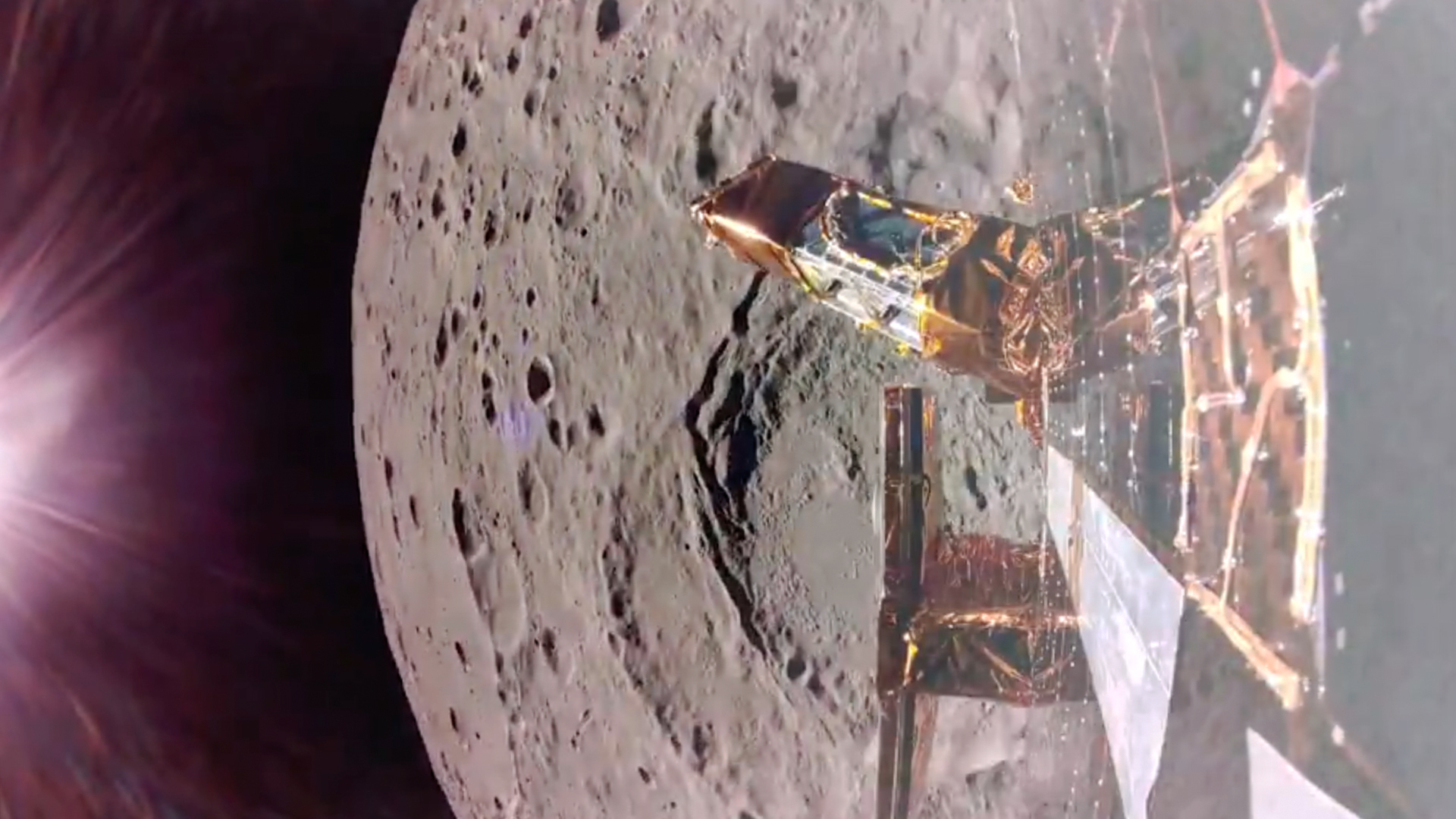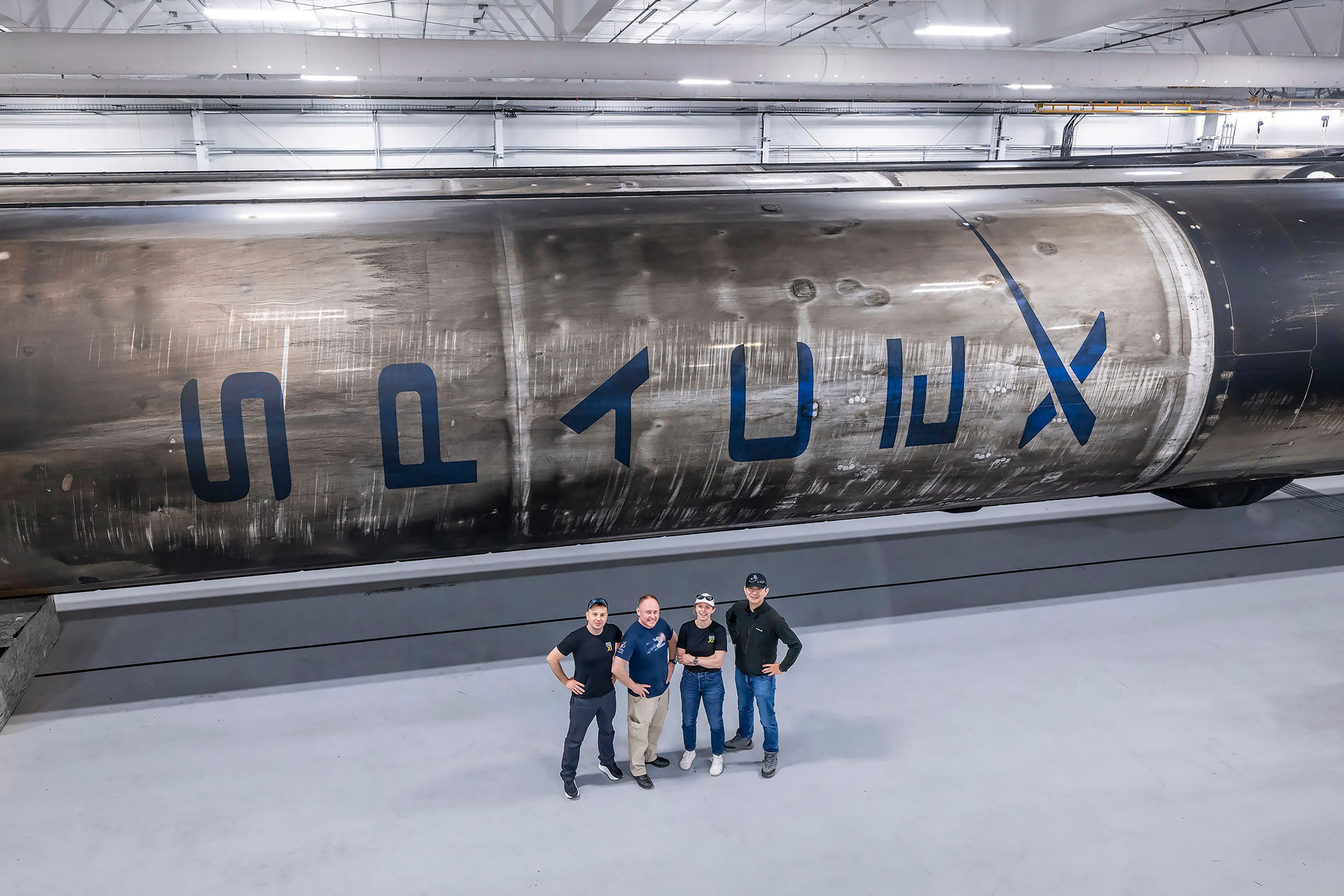NASA Vision Gets Self Exam at Conference
ORLANDO, Florida -- More than 1,000 participants from government, commercial firms both large and small, academia and representatives from other space agencies around the globe have are taking part in the 1st Space Exploration Conference.
The theme of the meeting, being held here January 30 through February 1, is "Continuing the Voyage of Discovery" with NASA as the lead sponsor of the gathering.
The event is part pep-rally and sanity check regarding how the agency has responded to President George W. Bush's Vision for Space Exploration -- the Moon, Mars and beyond agenda sketched out over a year ago.
There is no doubt that U.S. aerospace contractors -- and NASA itself -- are cocked and ready to move out on a focused, multi-decade human and robotic space initiative. In scope, the effort is unprecedented.
But while some officials here feel that the "stars are aligning" to proceed, there is also palpable concern that political support and budgets to sustain the effort will fall short, thus slow down and jeopardize the enterprise.
Feeding frenzy
Outgoing NASA Administrator, Sean O'Keefe, told attendees that next week's release of the space agency's new budget will once again show the marks of a White House keen to financially fuel the space exploration vision, he said.
Get the Space.com Newsletter
Breaking space news, the latest updates on rocket launches, skywatching events and more!
"The really bad news is that NASA will be among the very few agencies with an increase," O'Keefe said. He warned of a "feeding frenzy" by those trying to gouge the healthy NASA budget to pay for other programs.
O'Keefe underscored other challenges ahead, noting that a "new frame of mind" is required at NASA to succeed in the years to come. The NASA community and the yet-to-be-announced incoming space agency chief need to take immediate first steps in moving out on the strategic direction that President Bush has outlined, he said.
The return to flight mission of space shuttle Atlantis, O'Keefe said, means that "there are lots of eyes on NASA right now." The stakes are "substantially higher" than what the agency experienced in returning to flight after the shuttle Challenger accident in 1986, he added.
NASA's credibility faces a stern test in restarting space shuttle flights, O'Keefe explained.
"There is no margin...we've got to do this very successfully. Everybody is going to be watching. Is that schedule pressure? No...it's going to fly when it is ready. Is it pressure? You bet...lots of it," O'Keefe said.
No gravy train
Congressman Dave Weldon told those gathered to expect tough times ahead in acquiring necessary funds for a Moon, Mars and beyond action plan.
Congress is going to be put under a "tremendous amount of pressure" to control and reduce spending, Weldon said. "We will be trying to pull this off in a very, very difficult climate," citing Medicare and social security budget challenges as costly nightmares that Congress must continue to wrestle with.
Weldon offered words of wisdom for NASA contractors. "For industry, they are going to have to dig deep into their most creative, innovative and efficient concepts."
"Industry cannot expect this to be a gravy train," Weldon cautioned.
Industry must steer clear of overly complex and pricy concepts, Weldon advised, that will require significant, dramatic levels of new funding by Congress not previously planned for. "It can't be business as usual."
"I think we're at a crossroads," Weldon suggested. "We have to be innovative and we have to struggle to reduce costs if we're going to be able to keep things on track," he said.
Irreversible course?
However, the question remains as to whether America serious about having a human spaceflight program, one that dispatches expeditionary crews back to the Moon and outward to Mars. That question is surely to reach debate level by Congress and the public, said John Logsdon, Director of the Space Policy Institute at George Washington University in Washington, D.C.
"We do not have a mandate for this yet...whatever Mr. O'Keefe or anybody else says. And that's, I think, what is crucial over the coming months...getting a NASA Administrator with White House support to lead that debate," Logsdon told SPACE.com.
The sustainability of a Moon, Mars and beyond initiative is still to be determined, Logsdon said. "We have started...but we're not started on an irreversible course."
A growing theme in moving forward on the Vision for Space Exploration is the potential role of international cooperation.
Logsdon said NASA's now year-long deliberation regarding the vision has stimulated international interest. "But the terms and conditions of participation are still very unclear a year later."
The type of international involvement in advancing the long-term effort will not mirror the multi-nation agreements to build the International Space Station (ISS).
The ISS experience is a negative to participating nations, Logsdon added: "They're saying let's not do this again."
Industry-to-industry model
The international model that is evolving is building industry-to-industry relationships, said Rear Admiral Craig Steidle (retired), Associate Administrator for the NASA Exploration Systems Mission Directorate.
"That's the way we're trying to coax the program...and I think it's starting to work," Steidle told reporters Monday.
Steidle said that for the vision to be sustainable over the long haul it has to be international, he told SPACE.com.
Recent meetings with the Japanese and Europeans have proven beneficial, Steidle noted, in that they are modifying their governmental space plans to be more in synch with the U.S. strategy for space exploration. For example, the European Space Agency's Aurora program now embraces Moon exploration, he said.
"Because of time and geography," Steidle added, we can't do it on a daily basis, but we're making progress."
In April, Steidle will be traveling to Russia to better appreciate that country's space technology and operating procedures.
"This space business should be a partnership," Steidle concluded.
Join our Space Forums to keep talking space on the latest missions, night sky and more! And if you have a news tip, correction or comment, let us know at: community@space.com.

Leonard David is an award-winning space journalist who has been reporting on space activities for more than 50 years. Currently writing as Space.com's Space Insider Columnist among his other projects, Leonard has authored numerous books on space exploration, Mars missions and more, with his latest being "Moon Rush: The New Space Race" published in 2019 by National Geographic. He also wrote "Mars: Our Future on the Red Planet" released in 2016 by National Geographic. Leonard has served as a correspondent for SpaceNews, Scientific American and Aerospace America for the AIAA. He has received many awards, including the first Ordway Award for Sustained Excellence in Spaceflight History in 2015 at the AAS Wernher von Braun Memorial Symposium. You can find out Leonard's latest project at his website and on Twitter.










